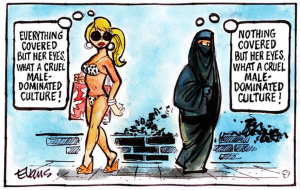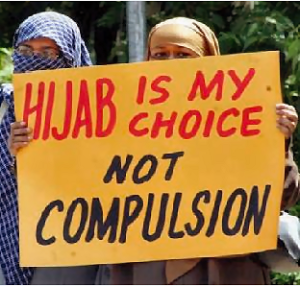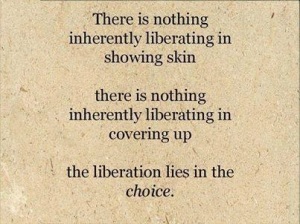For AP Literature, I was asked to write a villanelle (a type of poem) about any subject I wanted. I decided to write about the niqab and abaya, the full-covering some Muslim women chose to wear. In recent years, the niqab has become a politically-charged item of clothing, and has been banned or challenged in multiple countries around the world. Currently, the Netherlands are moving forward with a partial ban of the niqab.
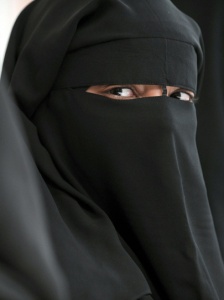
The niqab. For a description of the different types of covering, visit this blog post.
In France, the main argument for banning the niqab was that some women may be forced to wear the niqab, and banning it would liberate these women. After hearing this, millions of people, both Muslim and non-Muslim, wondered, what about the women who chose to wear it, often against their family’s wishes? Wouldn’t barring someone from wearing the niqab be just as opressive as forcing someone to wear it? Clearly, on both sides there are strong feelings, as exemplified through this CNN interview.
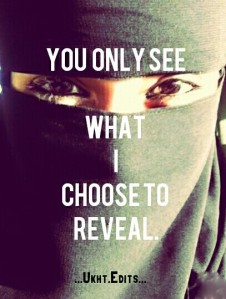
Many women see niqab, hijab, etc. as a form of rebellion and a way to refuse to be judged based on their looks. Image courtesy of Google.
One of my personal pet peeves is when people insist that all women who cover themselves with a hijab, niqab, abaya, etc. are somehow forced into doing it. While there are no official numbers as to how many women wear the niqab worldwide, the vast majority do it on their own accord. In this CNN podcast, American niqabi Nadia explains why she wears the niqab. She believes that it is not a practice madated by Islam, but rather that it brings her closer to God and forces others to judge her solely on her intellect as opposed to her looks.
Niqab, hijab, abaya, jilbab, etc. are all issues which people feel very strongly about, but instead of outlawing this or mandating that, why don’t we allow women to chose for themselve what to wear? After all, isn’t that true liberation?
Villanelle about Niqab
I have never before felt so free as a woman,
though some may believe these yards of fabric imprison me.
I refuse to be the plaything of men.
The temptations of this world I abandon;
The beautiful lies of advertisements don’t beguile me.
I have never before felt so free as a woman.
Walking in the city, I am unknown, unharassed by men.
When I pass them, they lower their gazes away from me.
I refuse to be the plaything of men.
I see her beside me, her speckled-with-goosebumps skin,
her head held too high in a vain attempt to be confident- she contrasts so much with me.
I have never before felt so free as a woman.
No longer must I expose myself, nor show my chin,
Nor my nose, nor my lips, nor my face- indeed, none of me.
I refuse to be the plaything of men.
I notice her as if I am staring in a mirror- I see her, my twin.
A woman who is covered like me. Both she and
I have never felt so free as women. Both she and
I refuse to be the plaything of men.

